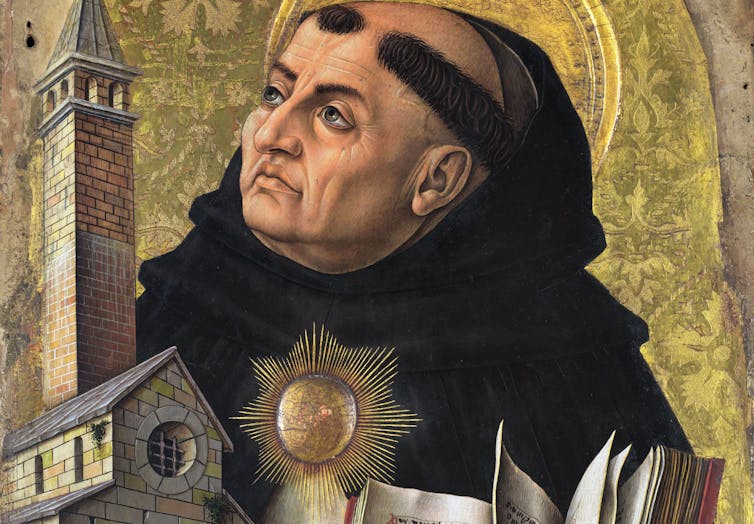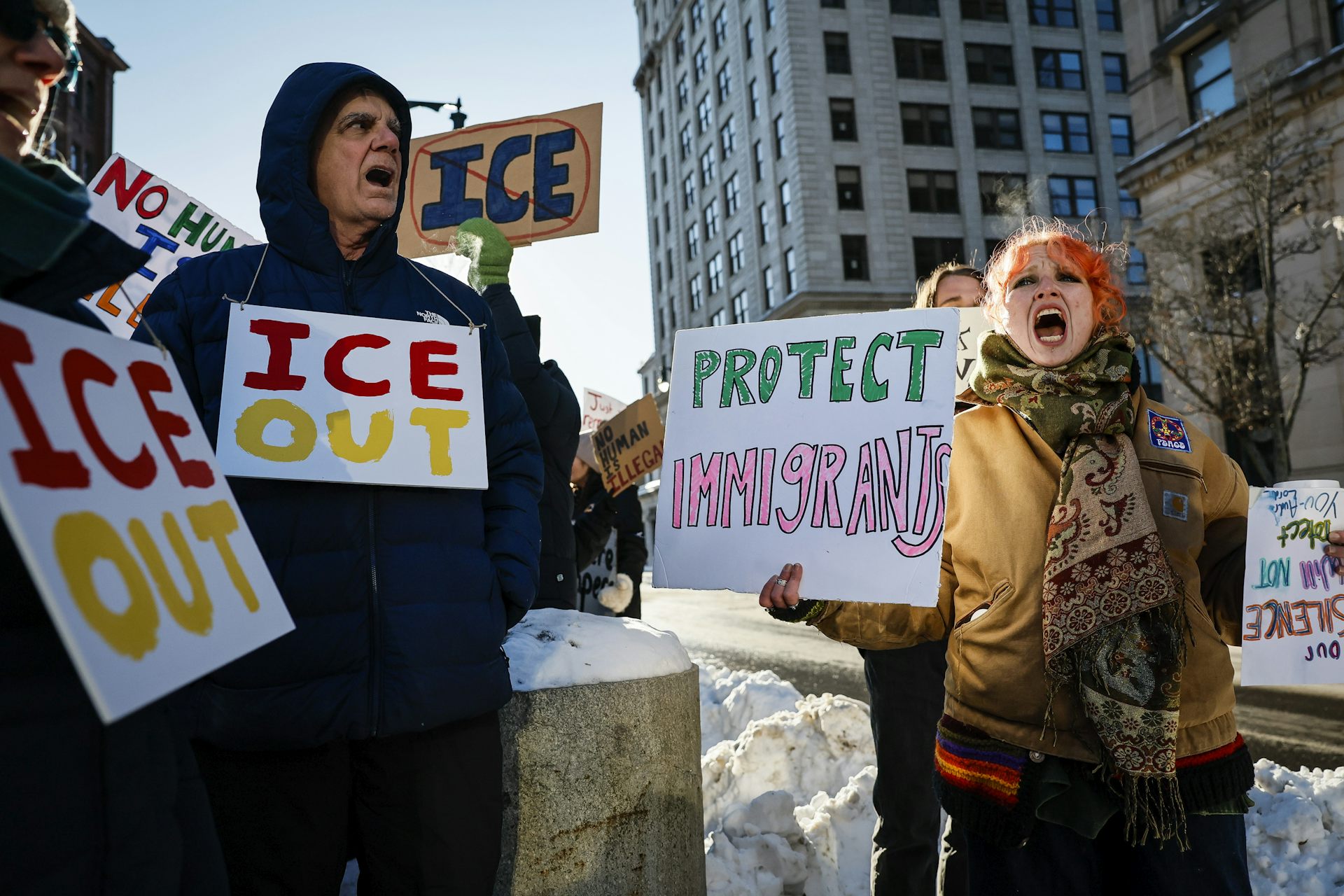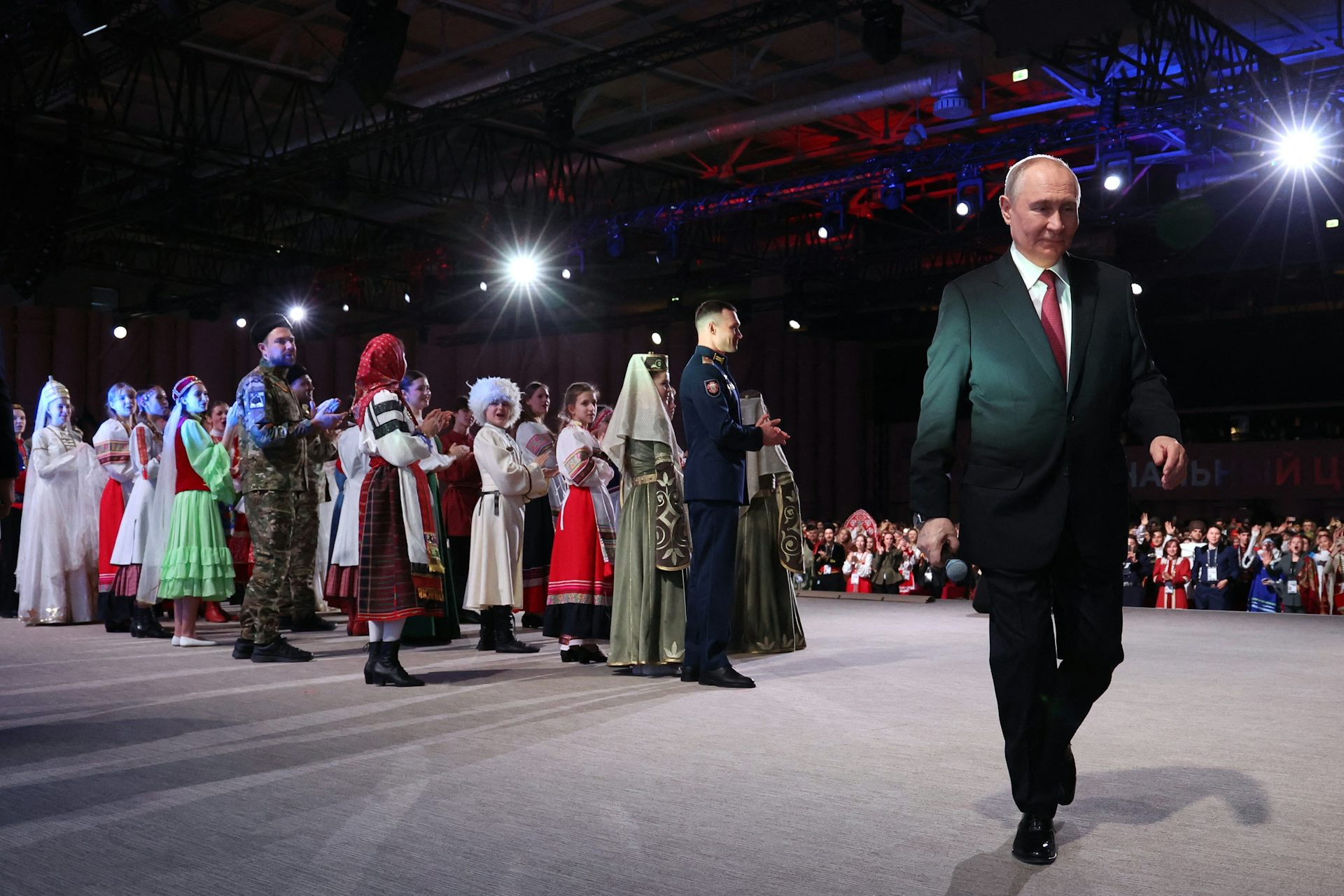What the Catholic Church says about political violence and the need to forgive – even would-be assas
At a time when so much violence and war are ravaging the world, a scholar of medieval Christianity explains Catholic views on the morality of warfare and the value of forgiving enemies.

Following the attempted assassination of former President Donald Trump, the Vatican released a statement on July 14, 2024, condemning the violence. The attack, it said, “wounds people and democracy, causing suffering and death.”
Other Catholic leaders also expressed concern over the political violence.
Archbishop Timothy Broglio, for example, president of the U.S. bishops’ conference, said in a statement “Together with my brother bishops, we condemn political violence, and we offer our prayers for President Trump, and those who were killed or injured. He also called for an end to "political violence,” which he noted was “never a solution to political disagreements.”
This assassination attempt comes at a time of violence and war around the world. The conflict in Ukraine has been going on more than two years after Russia invaded, and the war in Gaza, prompted by a Hamas terrorist attack on Israeli civilians, has continued for months.
As a specialist in medieval Christianity, I know that Catholic views on the morality of killing have evolved over time. And while Christianity eventually came to defend the idea of warfare for self-defense and the common good, it has also emphasized the value of forgiveness of enemies.
Early Christianity
In the earliest centuries of Christianity, when it was illegal in the Roman Empire, it was considered a religion for those perceived as weak – such as women and slaves. Christians were generally pacifists, hiding during persecutions or submitting to arrest without physical violence.
In fact, bloodshed was so abhorrent to some Christians that in at least one local church community, thought to be in Rome or North Africa, soldiers could not be accepted as “catechumens” – those preparing for baptism into the Christian community – unless they refused any order to kill others. Any catechumen or baptized believer who wanted to become a soldier was to be rejected by this community for “despising” God.
However, some Christians did serve in the Roman army, but by the end of the third century, they were purged from the army in the eastern part of the empire if they refused to offer sacrifices to the pagan gods.
Morality of killing
Christianity was legalized in the beginning of the fourth century, and gradually became the official religion of the Roman Empire by its end. Christian theology had to shift over centuries regarding the morality of killing, including murder, the death penalty and warfare.
One important change was the notion of self-defense. The theologian St. Augustine, who died in 430 C.E., taught that a Christian nation has the right to wage war under certain conditions: It must be a war waged in self-defense; the ultimate goal must be peace; it must be waged without cruelty; and it cannot be an offensive war of conquest. In order to achieve peace, it was acceptable to kill other soldiers or combatants, including the leader of the enemy army.
For example, in 732 C.E., a Christian army led by Frankish nobleman Charles Martel defeated a Muslim army that had already conquered most of Christian Spain. His victory at the Battle of Tours stopped the spread of Muslim rule to Gaul and further into Christian Europe.
However, neither the church nor the state always observed these principles. The establishment of the Inquisition in the early 13th century – initially to ensure just investigations of accused heretics – was later plagued by abuses like restrictive imprisonment and brutal torture, which led to the death of tens of thousands.
Acting for common good
Later medieval theologians expanded on the idea of self-defense and added another condition: defending the common good.
One of the most important thinkers on the topic was the 13th century Dominican priest, St. Thomas Aquinas. In his massive work, the “Summa Theologica,” Aquinas offers a detailed consideration of the conditions under which war can legitimately be waged.

But in another work – “On the Government of Rulers,” coauthored with Bartholomew of Lucca – Aquinas discusses a related question: What if a community finds itself oppressed by an extreme tyrant, who puts his own desires before the good of the community he governs and will not relent?
In that case, a group of community leaders, acting in the best interest of the common good, may depose or kill the tyrant. However, a single person, that is, a lone assassin, may not take matters into his own hands and act on his own.
Later perhaps the leaders of the American Revolution unknowingly reflected this principle when deciding to fight for independence against what they perceived to be the unjust tyranny of the British Parliament and king.
Both fundamental values, self-defense and the common good, are still taught today in the Catechism of the Catholic Church: Human life is sacred, and no individual alone has the right to take a life. But both individuals and societies have the right to “legitimate” self-defense.
The catechism makes it clear that self-defense must be the intention, even if it results in the death of the other. Soldiers may have to kill, but they do so with the intention of defending their country, not a personal desire to take a life. Individuals too, can defend themselves if attacked, with the intention of scaring or disabling an attacker, but not with the specific intention of killing him.
The importance of forgiveness
A third practice lies in the area of prayer, not doctrine: the forgiveness of one’s enemies.
This Christian belief is rooted in the Gospels, specifically, on how Jesus taught his disciples to pray, known as the Lord’s Prayer. Christians are supposed to love and forgive their enemies, an important teaching that applies even to those who might try to kill them.
For prisoners condemned to death, it was customary to personally forgive the executioner before dying. In 1535, for example, St. Thomas More, England’s lord chancellor, who had been sentenced for treason, even kissed his executioner before forgiving him.
Murder victims, too, have often forgiven their attackers. In 1902, as she lay dying of her wounds, St. Maria Goretti forgave the man who tried to rape her and stabbed her when she resisted. And in 1996, Christian de Chergé, the abbot of a group of Catholic monks kidnapped and later executed by Algerian terrorists, left a final statement that addressed his executioner as “my friend of the final moment,” and expressed a hope that they would meet again in paradise.
Contemporary popes
The words and actions of recent popes also clearly convey the Catholic hope for love and forgiveness in the face of violence.
After President John F. Kennedy was assassinated in 1963, Pope Paul VI made a statement that same day, expressing not just his own sorrow for the Kennedy family and the people of the United States, but also concluding with his prayer “that not hatred, but Christian love, should reign among all mankind.”
In 1981, when Turkish citizen Mehmet Ali Ağca attempted to assassinate Pope St. John Paul II, the pope, who survived, later visited the man in prison to forgive him in person. Ağca had been sentenced to life in an Italian prison but at the request of the pope, he was released and sent back to Turkey.
Clearly, Catholic teaching on killing has evolved over time and continues to stress the value of human life and the common good. What hasn’t changed is the necessity for forgiveness.
Joanne M. Pierce does not work for, consult, own shares in or receive funding from any company or organization that would benefit from this article, and has disclosed no relevant affiliations beyond their academic appointment.
Read These Next
Algorithms that customize marketing to your phone could also influence your views on warfare
AI systems are getting good at optimizing persuasion in commerce. They are also quietly becoming tools…
How Homeland Security’s subpoenas and databases of protesters threaten the ‘uninhibited, robust, and
It’s difficult to measure what is lost when an opinion is never voiced and impossible to catalogue…
Why Stephen Colbert is right about the ‘equal time’ rule, despite warnings from the FCC
The ‘equal time’ rule has been around for a century and aims to promote broadcasters’ editorial…





